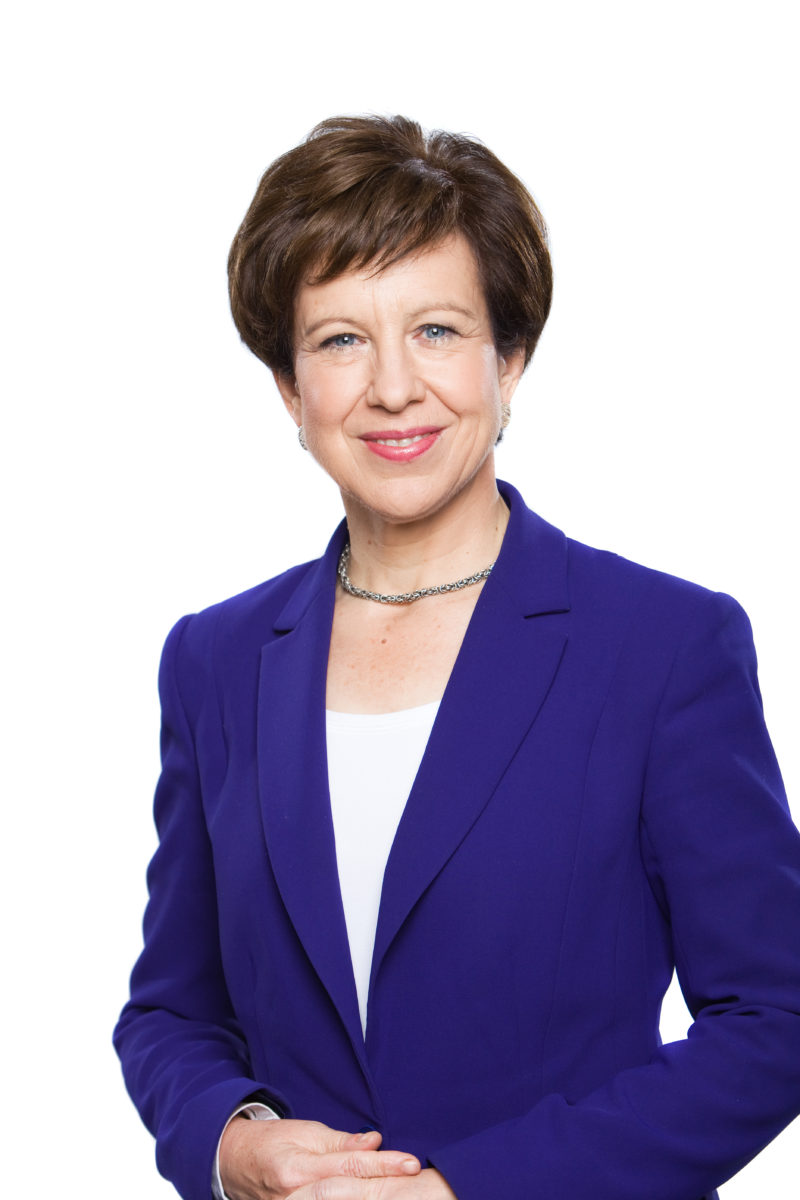 Lyse Doucet has been interested in journalism since high school. But even after completing an undergraduate degree from Queen’s University and a master’s in International Relations from the University of Toronto, she was not working as a journalist.
Lyse Doucet has been interested in journalism since high school. But even after completing an undergraduate degree from Queen’s University and a master’s in International Relations from the University of Toronto, she was not working as a journalist.
It was in West Africa, after she completed her contract with Crossroads International teaching English in an African village for four months, that the pieces fell into place for Doucet.
“It was one of those classic, right place, right time situations. The BBC was setting up its first West Africa office, they needed somebody else and there I was.”
Lyse Doucet has been working for the BBC for more than 30 years, now serving as the British news organization’s chief international correspondent. Tonight in the Kinsella Auditorium at 8, she delivers the annual Dalton Camp lecture. Doucet will be speaking about the correlation between Henry Wadsworth Longfellow’s poem “Evangeline” and today’s refugee stories.
After living in Côte d’Ivoire for five years. Doucet covered Pakistan, Afghanistan and Iran for five years, before spending five years working in the Middle East. Today, she is covering many of the biggest international stories.
“It’s the kind of journalism I like to do, to get stuck in. I’m fortunate because the BBC has a focus on international news. It’s been a bit of a passport for me to go around the world. I still see it as continuing my education because I’m constantly learning, meeting new people, and going new places.”
Doucet said she’s always been interested in the world. She still remembers learning about different countries in school and collecting dolls of the world. Her fascination grew in university, especially while attending the University of Toronto, due to the multiculturalism of Toronto. She said meeting people from all over the world widened her view and instilled within her a desire to travel.
“I think there was always this curiosity, which is a fundamental quality if you’re going to be a journalist. You have to be curious about things. You have to want to know and you have to never stop wanting to know.”
Doucet described coming from New Brunswick as a secret weapon to which she attributes her success in journalism. The sense of community and support she grew up with provided her with values, respect and an openness that influenced the journalist she became.
“As I travelled I realized that everywhere I went, people knew their history. So if it was incumbent upon me to learn the history of other people, then I should also know my own history if I was to remain true to myself and true to my journalism.”
Recently, Doucet has been covering stories on the Syrian refugee crisis. Doucet said covering such crucial international issues is a privilege. She said this privilege comes with both excitement and responsibility.
“For me trying to tell the story, it’s essentially a human story. It’s about mothers, fathers, children, neighbourhoods and societies. In the case of Syria, it’s about families being shattered, lives torn apart, neighbourhoods destroyed, incredible loss of family, friends, of really one’s whole bearing in one’s society.”
That’s where “Evangeline” comes into play.
Longfellow’s poem tells the story of two lovers who lose each other during the Acadian expulsion. Doucet was struck by how – even though this poem was written by an American writer – it eventually was adopted by the Acadians.
“When the Acadians, many years later, discovered that poem, it gave them a sense of identity. It gave them a sense of meaning and helped them make sense of their story. And now whenever Acadians gather, the story about Evangeline, written by an American poet, is constantly played.”
This adaptation by the Acadians really resonated with Doucet in terms of the power of storytelling. It was a story about refugees that was empowering.
